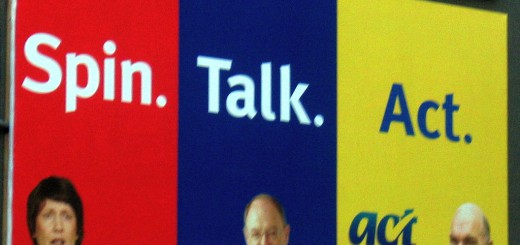Three reasons why David Cunliffe’s apology for being a man might have been a smart move
This post was originally published at Liberation.
The majority view seems to be that David Cunliffe’s apology on Friday for ‘being a man’ was a mistake. But a contrary view could be that the apology was a very deliberate and calculated risk. Here are three reasons why Cunliffe’s apology might have been a smart move.
1. Voters are talking about Cunliffe
There’s only one thing worse than being talked about – not being talked about.
There are 74 days until the election on 20 September.
If Labour and Cunliffe win every one of these days – in terms of media attention and focus – Labour would almost certainly lead the next government.
If Labour wins only half of the days, it would still have a decent chance.
But if Labour wins none or only a few of the days, how could it possibly have any chance at all?
Duncan Garner reminded us recently that in 2011, Phil Goff found himself shut-out of the final two weeks of the campaign, as the teapot tapes scandal – centred on John Key and John Banks – was brewing. While the scandal arguably led to a drop in support for National, what was even more fatal than the negative coverage about Key, was the lack of political oxygen for Goff.
If Cunliffe had given a standard speech on Friday about Labour’s policy on domestic violence, it would have been dutifully reported and praised by usual supporters.
But in giving an unorthodox and surprising apology for being a man, Cunliffe cast his net far wider.
Was Cunliffe criticised, ridiculed even for his statement? Undoubtedly. But this is politics, just over two months out from an election. So he’s going to be criticised (or worse, “slammed”) regardless of what he says. Perhaps it’s better to make your speech count then.
2. This was bold
This is National’s election to lose – and Labour’s to win. This is about toppling a two-term government, not playing to a ‘time for a change’ sentiment. Labour will only lead the next government later by taking some risks now. Taking risks means a higher chance of failure than playing it safe. But taking risks is Labour’s best – and perhaps only – path to success.
‘I’m sorry for being a man’ was a calculated risk.
It was not an off-the-cuff remark, just as Trevor Mallard’s plan to bring back the moa was not.
The downside of the risk is that voters see the statement as another of Labour’s detours into identity politics.
The risk is that voters will file Cunliffe’s statement in the brain-fade section, along with the ‘man-ban’, anti-smacking and restricted-flow showerheads.
The risk is that Chris Trotter’s fabled ‘Waitakere man’ will take a winter walk out on to his deck, crack open a can and take the red Labour phone off the hook.
The reward to the risk will come if voters – especially women voters who have not warmed to Cunliffe – see him as courageously ‘speaking out’ and talking about an issue which has become increasingly mainstream, as seen in the public outrage over the ‘Roastbusters’ scandal in 2013 and in the Louise Nicholas case of 2007.
Revealingly, Cunliffe doubled-down on his comments at the weekend, saying he wouldn’t resile from the comments. This is politics by instinct, not focus group.
3. It primed voter attention for Labour’s weekend congress
Political parties get a certain number of chances to set the agenda during election year. These include unveiling the party list, your annual conference and the official campaign launch.
Labour’s party list was overshadowed by new Donghua Liu allegations and talk of unhappy campers, with several electorate MPs withdrawing from the list at the last minute. In other words, it wasted its chance.
This being the case, and coming off the back of National’s very successful ‘Team Key’ conference of the previous weekend, it was incredibly important for Labour to get its weekend congress right. It could not afford a disunited affair, nor a limp showing which would be compared unfavourably with National’s own event.
As it happened, Labour managed to dominate the news over Friday (with the Cunliffe apology), then on Saturday (laptops for all) and Sunday (reduced class sizes). These were three weekend days, in winter, without an All Blacks test.
These were three precious campaign days that Labour arguably won, at least in political oxygen terms.
There are 74 to go.
Homepage photo credit: original image

